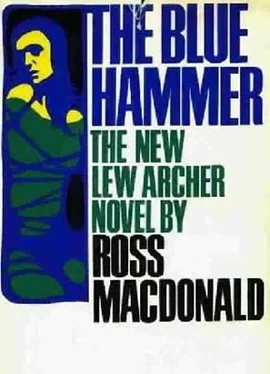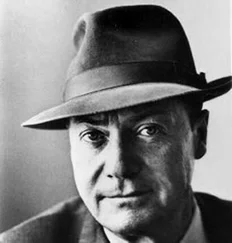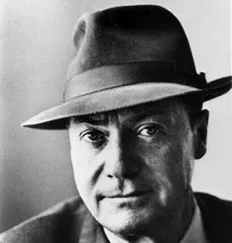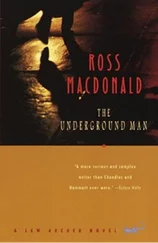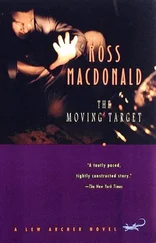"Who is he, then?"
"That's what I've been trying to find out. I took-I borrowed that picture from the Biemeyer house because I suspected that Gerard had painted it. I wanted to try and determine its age, and also compare it with the Chantrys in the museum."
"It wasn't stolen from the museum, was it?"
"No, sir. I lied about that. He took it from my room here in this house. That's when I suspected that Gerard had painted it. And then I began to suspect that he really was Richard Chantry, and not my father at all."
"Then why did you try to protect him? Because you thought your mother was involved?"
Fred moved restlessly and looked past me up the stairs. Sitting at the top was Betty Siddon, taking penciled notes in a sketch pad held on her knee. My heart jumped. She was incredible. She had been up all night, been threatened and mistreated by a suspected murderer, and all she wanted to do was catch her breaking story as it broke.
"Where is your mother, Fred?"
"Down in the front room with Mr. Lackner and Captain Mackendrick."
The three of us went down the steps. Betty stumbled once, and I felt her weight on my arm. I offered to drive her home. She turned down the offer.
Nothing much was going on in the drab living room. The questioning had reached a near impasse, with both Gerard and Mrs. Johnson refusing to answer Mackendrick's questions and the attorney Lackner reminding them of their rights. They were talking-or, rather, refusing to talk-about the murder of Paul Grimes.
"I have a theory," I said. "By now it's become a little more than a theory. Both Grimes and Jacob Whitmore were killed because they discovered the source of the Biemeyers' missing picture. Which incidentally isn't missing any more." I showed it to them. "I just found it in the attic, where Johnson probably painted it in the first place."
Johnson sat with his head down. Mrs. Johnson gave him a bitter look, at the same time worried and vengeful.
Mackendrick turned to me. "I don't understand what makes the picture so important."
"It seems to be a Chantry, Captain. And Johnson painted it."
Mackendrick got the message by degrees, like a man becoming aware that he has an illness. He turned and looked at Gerard Johnson and his eyes gradually widened.
Gerard returned the captain's look in dim fear and dejection. I tried to penetrate the puffed discolored flesh that overlay the original contours of his face. It was hard to imagine that he had ever been handsome, or that the mind behind his dull reddened eyes had created the world of his paintings. It occurred to me that his essential life might have gone into that world and left him empty.
Still there must have been vestiges of his younger self in his face, because Mackendrick said, "You're Richard Chantry, aren't you? I recognize you."
"No. My name is Gerard Johnson."
That was all he would say. He stood silent while Mackendrick advised him of his rights and put him under arrest.
Fred and Mrs. Johnson were not arrested but Mackendrick asked them to come to the station for questioning. They crowded into his official car under the eyes of a young detective-sergeant who kept his hand on his gun butt.
Betty and I were left standing on the sidewalk in front of the empty house. I put the Biemeyers' picture in the trunk of my car and opened the front door for her.
She hung back. "Do you know where my car is?"
"Behind the house. Just leave it there for now. I'll drive you home."
"I'm not going home. I have to write my story."
I looked closely into her face. It seemed unnaturally bright, like an electric light that was about to burn out.
"Let's go for a little walk. I've got work to do, too, but it can wait."
She came along with me under the trees, leaning with carefully controlled lightness on my arm. The old street seemed beautiful and formal in the morning light.
I told her a story that I remembered from childhood. There had been a time, it said, when men and women were closer than twins and shared the same mortal body. I told her that when the two of us came together in my motel room, I felt that close to her. And when she dropped out of sight, I felt the loss of part of myself.
She pressed my arm. "I knew you'd find me."
We walked slowly around the block, as if we had inherited the morning and were looking for a place to spend it. Later I drove her downtown and we had lunch together at the Tea Kettle. We were contented and grave, like two people performing a ceremony. I could see the life flowing back into her face and body.
I dropped her off at the newspaper office. She ran up the stairs toward her typewriter.
I went back to the police station. There was a coroner's wagon in the parking lot, and I ran into Purvis coming out of Mackendrick's office. The young deputy coroner was flushed with excitement.
"I got a positive identification on those bones."
"Where?"
"Skyhill Veterans' Hospital, in the Valley. He was a patient there for several years after the war. His name was Gerard Johnson."
"Please repeat that."
"Gerard Johnson. He was badly wounded in the Pacific. They practically had to rebuild him from the ground up. He was released from Skyhill about twenty-five years ago. He was supposed to go back for regular checks on his condition, but he never did. Now we know why." Purvis drew in a deep satisfied breath. "Incidentally, I have to thank you for helping me with the lead. Remind me to do something for you someday."
"You can do something for me now."
Purvis looked slightly startled. "Okay. Just name it."
"You better write this down."
He got out an official pad and a ball-point pen. "Shoot."
I shot, at a distant target. "Gerard Johnson had a friend in the army named William Mead. Mead was murdered in Arizona in the summer of 1943. Sheriff Brotherton of Copper City is familiar with the case. He was the one who found Mead's body in the desert and shipped it home to California for burial. I'd like to know where it was shipped to, and where it was buried. It might be a good idea to dig it up and examine it."
Purvis looked up from his pad and squinted into the sun. "Examine it for what?"
"Cause of death. Identity. The works. Also, Mead had a wife. It would help if we could trace her."
"That's a big order."
"It's a big case."
I found Mackendrick alone in his office, looking glum and shaken.
"Where's your prisoner, Captain?"
"The D.A. took him over to the courthouse. Lackner advised him to stand mute. The rest of the family isn't talking either. I was hoping to wrap this up today."
"Maybe we still can. Where are Fred and his mother?"
"I had to let them go home. The D.A. didn't want to bring charges against them, at least not yet. He's fairly new on the job, and still feeling his way. According to him, all we have against the Johnson woman is that she's been living with Richard Chantry and passing him off as her husband, which isn't a felony."
"It is if she was helping him to cover up a murder."
"You mean the murder of the real Gerard Johnson?"
"That's right, Captain. As you know, Purvis has established that the real Johnson was the man in the brown suit whose body was buried in the Chantry greenhouse. It looks as though Chantry murdered Johnson and stole his identity and moved in with Johnson's wife and son."
Mackendrick shook his head ponderously and sadly. "That's what I thought. But I've just got through checking Johnson out with the V.A. and the people at Skyhill Hospital. Johnson wasn't married, and had no son. The whole bloody family is a fake."
"Including Fred?"
"Including Fred." Mackendrick must have seen the pain in my face, because he added, "I know you made an emotional investment in Fred. It'll give you some idea of how I feel about Chantry. I really looked up to that man when I was a young patrolman. The whole town did, even if they never saw him. Now I have to tell them that he's a half-crazy drunk and a killer into the bargain."
Читать дальше
